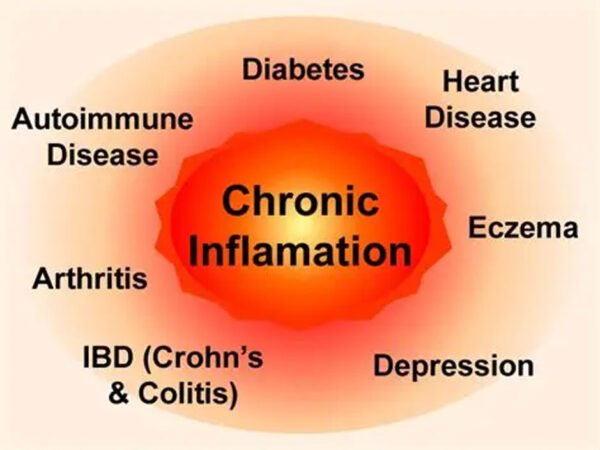Your gut does more than digest lunch. It shapes your immunity, mental clarity, and energy. Recent research reveals the microbiome’s stunning influence. Science is just catching up to what matters.
The gut houses trillions of microorganisms. These bacteria, fungi, and viruses work together. They create a living ecosystem inside you. This community determines how you feel daily.
Understanding Your Microbiome
Scientists call it the gut microbiome. It includes all microbes in your digestive tract. Think of it as a microscopic rainforest. Diversity matters here just like nature.
Your gut contains over 1,000 bacterial species. Each plays a specific role. Some break down fiber into useful compounds. Others train your immune cells.
The American Gastroenterological Association regularly highlights breakthrough microbiome findings. Research continues to reveal new connections. Scientists now understand these microbes influence distant organs. The gut-brain axis proves particularly fascinating.
Why Gut Health Shapes Everything
Your digestive system produces essential chemicals. These substances travel through your bloodstream. They reach your brain, heart, and muscles. The impact extends far beyond digestion alone.
Short-chain fatty acids matter most. Gut bacteria create these from dietary fiber. They reduce inflammation throughout your body. They also regulate your appetite and metabolism. Butyrate stands out among these compounds. It provides energy to intestinal cells directly.
Mental health connects directly to gut function. Studies suggest anxiety links to specific bacteria. Depression correlates with reduced microbial diversity. The connection runs deeper than anyone expected. Neurotransmitter production happens partly in your gut. Serotonin synthesis appears to depend on bacterial activity.
Your immune system depends on gut health. Around 70 percent resides in your intestines. Beneficial bacteria train immune cells constantly. They help teach your body friend from foe. This education starts early in life. It continues throughout your entire lifespan.
Factors That Disrupt Gut Balance
Modern life challenges your microbiome. Processed foods lack the fiber bacteria need. Antibiotics wipe out good microbes indiscriminately. Stress hormones alter bacterial populations directly. These disruptions compound over time.
Sleep deprivation changes gut composition quickly. Exercise influences microbial diversity significantly. Even where you live affects bacteria. Urban dwellers show different patterns than rural residents. Air quality plays an unexpected role. Water sources contribute to bacterial exposure.
The National Institutes of Health warns about environmental impacts. Chemical exposures can shift bacterial communities. These changes may persist for months. Some alterations become permanent without intervention. Pesticide residues affect gut bacteria negatively. Heavy metals disrupt microbial metabolism. Plastic compounds create inflammatory responses.
Medication use beyond antibiotics matters too. Proton pump inhibitors reduce stomach acid. This allows harmful bacteria to survive. Nonsteroidal anti-inflammatory drugs damage gut lining. Birth control pills alter hormone-responsive bacteria. Even common pain relievers affect microbial balance.
Building a Healthier Gut
Dietary fiber feeds beneficial bacteria. Fruits, vegetables, and whole grains work best. Variety matters more than single foods. Different fibers support different bacterial species. Soluble fiber dissolves in water easily. Insoluble fiber adds bulk to stools. Both types serve distinct purposes.
Fermented foods introduce living cultures naturally. Yogurt, kimchi, and sauerkraut contain probiotics. These foods have nourished humans for centuries. Modern science confirms their traditional value. Kefir provides multiple bacterial strains. Tempeh offers unique fungal benefits. Miso delivers enzymes alongside probiotics.
Plant diversity creates microbial richness. Aim for 30 different plant foods weekly. This includes herbs, spices, and legumes. Each plant type supports unique bacteria. Colorful vegetables provide varied polyphenols. Nuts and seeds contribute healthy fats. Beans offer resistant starch.
Limiting processed foods helps bacterial balance. Ultra-processed items contain additives that harm. Emulsifiers damage the gut lining. Artificial sweeteners confuse microbial metabolism. Added sugars feed problematic bacteria. Preservatives reduce beneficial species. Choose whole foods whenever possible.
The Connection Extends Beyond Humans
Gut health principles apply across species. Mammals share similar digestive systems. Dogs experience the same microbiome benefits and challenges. Their bacterial communities function almost identically to ours.
Dog owners increasingly face digestive health decisions. Runny stools, gas, and irregular bowel movements plague many pets. These issues often stem from gut imbalance. Commercial kibble lacks diverse fiber sources. Processing destroys beneficial bacteria naturally present in food.
Veterinary research confirms what pet parents observe daily. Dogs with diverse gut bacteria often show better immunity. They tend to maintain healthier weight and energy levels. Joint health may correlate with digestive wellness. Skin conditions can originate in the gut.
Quality supplements address these widespread challenges. Science-backed formulations target specific digestive needs. Natural ingredients support beneficial bacterial populations. Companies like Bernies best create products specifically for canine gut health. Their supplements combine probiotics, prebiotics, and digestive enzymes. These formulations mirror human microbiome research applications.
Dogs may respond well to proper gut support. Stool consistency can improve within several days. Energy levels might increase after consistent use. Coat quality sometimes reflects internal bacterial balance. Behavioral issues occasionally resolve with better digestion. Pet parents report noticeable differences across multiple health markers.
The same fiber principles benefit dogs too. Pumpkin and sweet potato provide soluble fiber. Green beans offer insoluble fiber benefits. Variety matters just as much for pets. Rotating protein sources supports bacterial diversity. Different vegetables introduce varied prebiotic compounds.
Practical Steps for Daily Improvement
Start with small dietary changes. Add one extra serving of vegetables. Choose whole grains over refined options. These shifts support bacterial diversity quickly. Progress compounds over weeks and months.
Reduce antibiotic use when possible. Discuss alternatives with your healthcare provider. When antibiotics become necessary, rebuild afterward. Probiotic foods help restore lost diversity. Fermented vegetables work particularly well. Kefir provides multiple beneficial strains.
Manage stress through proven techniques. Exercise improves gut bacterial populations. Regular movement increases beneficial species. Even walking makes measurable differences. Yoga combines movement with stress reduction. Meditation calms the gut-brain axis. Deep breathing exercises lower cortisol levels.
Sleep seven to nine hours nightly. Your gut bacteria follow circadian rhythms. Poor sleep disrupts their natural cycles. Consistent schedules support microbial health. Darkness triggers bacterial changes naturally. Temperature affects bacterial metabolism. Keep bedrooms cool for better rest.
Hydration supports gut function fundamentally. Water helps move fiber through intestines. It maintains the mucosal lining. Proper hydration prevents constipation naturally. Herbal teas provide additional benefits. Green tea contains beneficial polyphenols. Ginger tea soothes digestive discomfort.
Emerging Research and Future Directions
Scientists continue uncovering microbiome mysteries. Personalized nutrition based on gut bacteria. Targeted therapies for specific conditions. The possibilities expand constantly.
Fecal microbiota transplants show promise. They treat serious infections effectively. Researchers explore applications for other diseases. Mental health treatment may benefit significantly.
Postbiotics represent the newest frontier. These are beneficial compounds bacteria produce. They may work better than probiotics alone. Clinical trials show encouraging early results.
Understanding individual microbiomes grows more accessible. Home testing kits provide detailed analysis. Results guide personalized dietary recommendations. This customization improves outcomes substantially.
The Kitchen Connection
Your kitchen decisions matter daily. Fresh ingredients support diverse bacteria. Home cooking gives you complete control. Restaurant meals often lack necessary fiber.
Meal planning benefits gut health significantly. Batch cooking saves time while improving nutrition. Preparing vegetables ahead removes barriers. Convenience shouldn’t sacrifice bacterial diversity.
Experiment with new plant foods weekly. Try unfamiliar vegetables and whole grains. Herbs and spices add both flavor. They also contribute unique prebiotic compounds.
Reading ingredient labels becomes essential. Additives harm beneficial bacteria specifically. Choose minimally processed options consistently. Your gut microbiome will respond positively.
Long-Term Health Implications
Gut health influences aging processes. Microbial diversity typically decreases with age. Maintaining variety may slow this decline. Dietary choices often matter more than genetics.
Chronic disease risk appears connected to microbiome composition. Type 2 diabetes correlates with specific patterns. Heart disease shows distinct bacterial signatures. Autoimmune conditions reveal characteristic imbalances.
Cancer research increasingly examines gut bacteria. Certain species may promote tumor growth. Others appear protective against malignancies. The relationship proves more complex than expected.
Metabolic health depends heavily on microbes. They extract calories from food differently. Some bacterial profiles may predispose to weight gain. Others seem to support healthy metabolism naturally.
Taking Control of Your Health
You shape your microbiome through choices. Every meal influences bacterial populations. Consistent habits create lasting changes. Small improvements compound over time.
Education empowers better decisions. Understanding gut health motivates dietary shifts. Knowledge helps you prioritize effectively. The science supports simple, actionable steps.
Start where you are right now. Perfect eating isn’t required. Progress beats perfection consistently. Your gut bacteria adapt to improvements quickly.
Remember that healing takes time. Microbiome shifts occur gradually. Patience produces sustainable results. Consistent effort matters more than intensity.
Conclusion
Gut health deserves serious attention. The microbiome influences every body system. Science reveals new connections constantly. Understanding grows deeper each year.
Simple dietary changes create powerful effects. Adding fiber, fermented foods, and variety. Reducing processed items and managing stress. These actions support beneficial bacteria naturally.
The same principles extend to families. Humans and pets benefit from similar approaches. Supporting gut health across species makes sense. Quality products and whole foods work together.
Your digestive system deserves daily support. The microbiome responds to consistent care. Start making changes today. Your future health depends on it.













